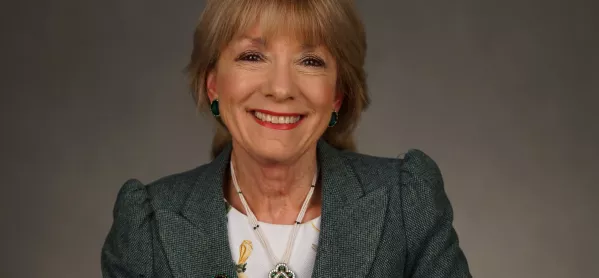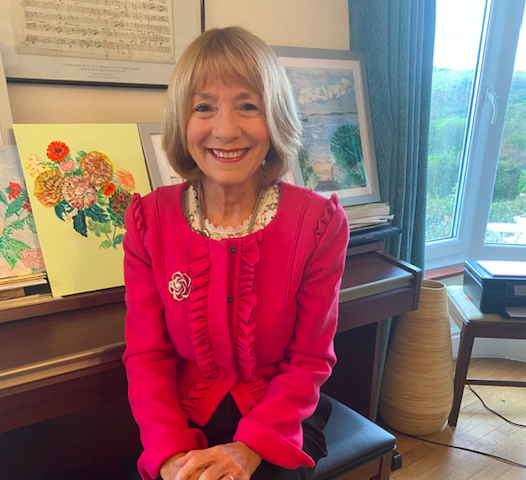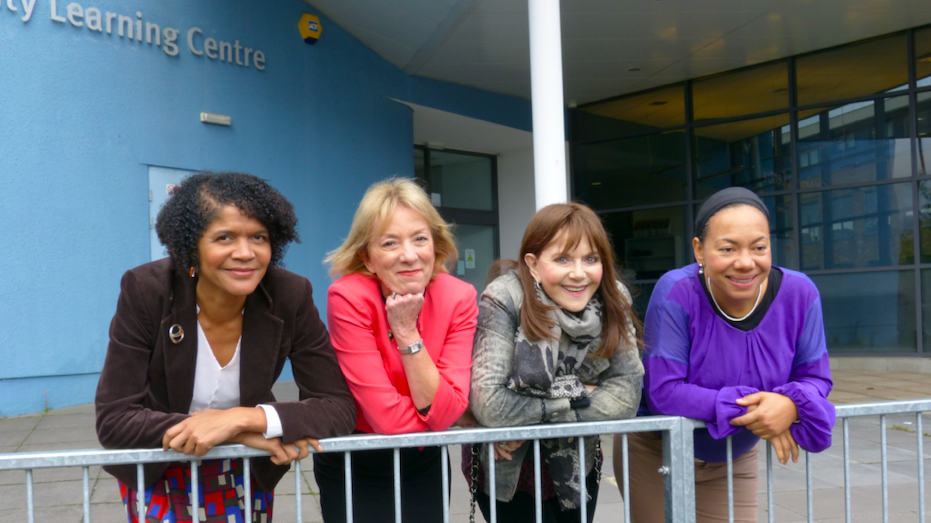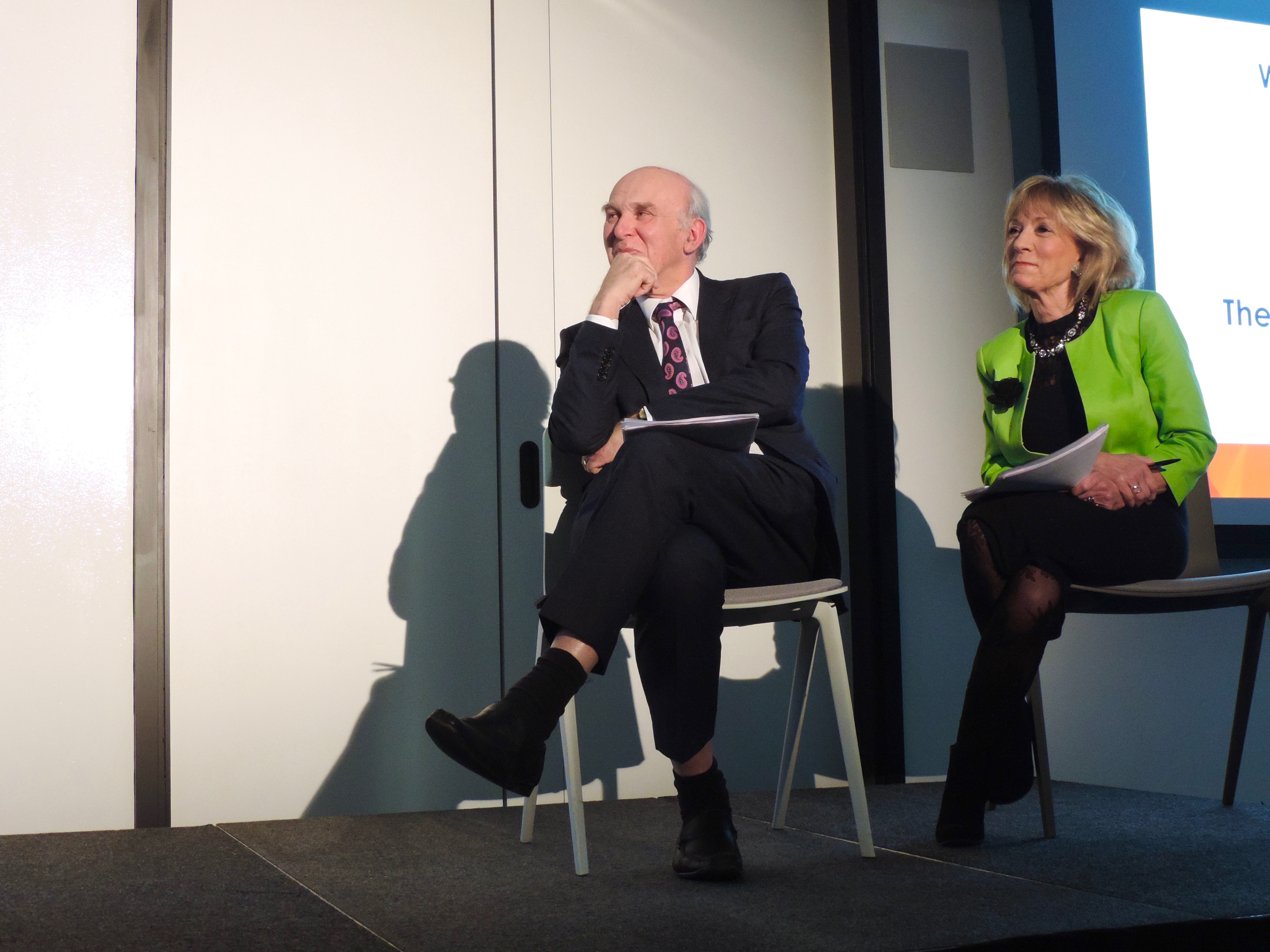
- Home
- Meet Ruth Spellman: architect of lifelong learning
Meet Ruth Spellman: architect of lifelong learning

“Enthusiasm spreads enthusiasm. When I'm 99, I'm still going to be doing something that I feel enthusiastic about,” says Ruth Spellman. “What's the point if you can't participate?”
No one could accuse Spellman of not participating, or, indeed, of being unenthusiastic. Even during the coronavirus pandemic, a period in which we’ve all struggled, Spellman has found joy. She’s taken to painting and poetry – and like most things in her life, does both with passion and talent.
The quickest of glances at Spellman’s CV is enough to be impressed: upon entering the world of work, she quickly progressed into leadership roles and went on to be chief executive at three successful organisations.
It is her last role as chief executive of the WEA – the UK's largest voluntary sector provider of adult education – that she speaks of most enthusiastically, and that most in the education world would know her for. But her commitment to lifelong learning throughout her career has caught the eye of many, not least those in the highest seats of power, for, in 2007, she received an OBE for services to workplace learning.
And this year she added another accolade to her collection: the lifetime achievement award at the Tes FE Awards. Despite being a clear and obvious winner to everyone around her, Spellman says that the award was “a complete surprise”.
“My husband deserves an Oscar for performance for not telling me. I’d been invited quite a long time ago to attend the ceremony with quite a personal invitation, and I thought, 'That's really lovely,' because I was moving on from full-time work with the WEA,” she says.
“[My daughter] Fiona rang me just before and said, 'Look, Mum, have a glass of bubbly handy and prepare to enjoy this.' She said she’d be on it, and that all the family were watching, and I started to think, 'What is going on?' And then, of course, it all happened and the whole experience was so lovely.”
News: Ruth Spellman wins at Tes FE Awards 2020
By Ruth Spellman: 'Adult education devolution is creating a postcode lottery':
Listen: Ruth Spellman on the post-18 review and prison education
Spellman was born in Pyle, a small village close to Bridgend in Wales. She’s the fourth daughter of six – “I was the leader of the younger ones,” she laughs. “I’m probably responsible for their bad habits, because I was always a bit a rebel” – and says that her mum and dad always encouraged the girls to be individuals and pursue their own interests.
Fascinated by adult education
“I think my dad was the first feminist in the Welsh Valleys. He was very pro all of us having a career and he encouraged us. My mum always had this view that we were all very different, we had different capabilities, and they were both very committed to us making the most of our abilities,” she says.
And Spellman had a glimpse of what her own path in life was to be at the tender age of 7. Her father was the principal of Ebbw Vale College, and would often take her into work with him.
“I remember being fascinated to see the people in his college – all those adults there, learning at 30-plus. They were apprentices in the coal and steel industry, which was the whole fabric of that part of the world. It amazed me to see people who were older actually choosing to go back into education,” she says.
Spellman says that, as a school pupil, she used to “make teachers earn their living”, and would query things a lot. She says that she was always thinking about what she was going to do with her education and was very determined not to learn just for the sake of it.
“It was about being proactive about it and challenging what other people had done because I didn't want to be the mirror image of everybody around me, I wanted to be myself and to achieve what I could,” she says.
Spellman decided to enrol at her father’s college to study economics because her school didn’t offer the subject – and ultimately achieved a degree in economics and political science at Cambridge University.
This decision – like the one to join the WEA as chief executive – had a feeling of destiny. Not only was she the third daughter in the family to go to Cambridge but her grandfather had also attended the university.
His is a classic story of the power of adult education: he left school aged 11 and worked in the iron and steel works for years before deciding that he wanted to better himself. He started to go to the library after work to teach himself, and went on to receive a scholarship to Cambridge. It was that journey that inspired Spellman and her sisters.

Spellman’s first foray into the workplace was at the coal board on a management scheme. She says that personal development was her priority – she was keen to learn, and wanted industry experience and understanding of the “real world”.
A range of job roles followed in her 20s – one at the National Economic Development Office, another at Coopers and Lybrand. During that time, she met her first husband, Bill, at a fancy dress party in Hampstead, London.
“He was Humphrey Bogart and I was supposed to Dick Whittington’s cat. At some point during the evening, I lost Dick Whittington,” she laughs. She says that Bill saw the world from a very familiar standpoint to her, and the couple went on to have three children.
Putting family first
Spellman says that while she always put her family first and her career second, she only ever took jobs that she could really see the value in – and, as a consequence, loved every single one.
“For so many women, your career is hooked around family, and doing things which present themselves at the time which you feel you can take on. I've always thought about the value of the job itself and not just done part-time jobs to fit around family. It's been about trying to combine doing an interesting role, a role that would stretch me, with also the job of bringing up a family,” she says.
“I've always had to think about the economics of it and how I was going to look after the children as well as have an interesting career. I put my family first and my career second, which sounds like a strange thing to say, but, for me, I wanted, like many women of my generation, to have both: to have a family life and a life at work and, obviously, to try and apply the same principles to both, in that none of them are given to you, you have to work at both.”
Sticking that position in the face of adversity was tough at times, but always worth it, says Spellman.
She recalls when she applied for the job at Coopers and Lybrand – and the reaction of the board of interviewers when she said she would like the position on a part-time basis. Their immediate response was "no", so Spellman said she wouldn’t take the job and walked away. Two days later, the director rang her, said they’d made a mistake and offered the job on her terms.

And that’s not been the only time Spellman has “stormed the battle”, as she puts it, and taken roles in which no women had been placed before.
In the early Nineties, she became the head of HR for the NSPCC, at a time where there were no women on the senior leadership team, and later she went on to become the first female chief executive of the Institution of Mechanical Engineers. And, of course, eight years ago, Spellman was hired as the first female chief executive of WEA since the organisation’s foundation in 1903.
“It’s not just been about me, it’s about a whole talent pool that we're wasting. There have been a large number of women who I've met in my career, and very few of them at the top of their organisations. I was thinking about who's influenced me and most of them are not in Who's Who or in The Times Rich List,” she says.
“They're people who've often fought against the odds and not been afraid to do so. That comes from being a little bit daring, being a little bit challenging and remembering to always put down the drawbridge for people to come behind you. It's only when you start understanding that these prejudices really do get in the way of people and that self-confidence is not given to everyone. It's only then that you can understand what you need to do to change it.”
Battling for education at the WEA
Spellman says that moving to the education sector with the WEA “felt very natural”. Initially, she felt that the organisation was “stuck in its ways”, and set about bringing about radical change.
She says that she went right back to the origins of the WEA – and wanted to ensure that it catered for working people on an accessible and flexible basis while also focusing on what community-based learning really meant to people.
In her seven years at the WEA, Spellman says that she really “battled for education” and wasn’t afraid to get her head “mucky” to engage with public policy.
“It wasn’t about the sanctity of the job of the WEA, it was about the importance of adult learning and trying to put that front of mind for everybody who worked there. If you can speak up for adult learning, that's part of the day job, you are all ambassadors for adult learning. And we must do it as well as we possibly can in order to instil the confidence that the government needs in us to carry on funding us, to carry on supporting us and to give us a higher priority,” she says.
Spellman says that she can’t say “enough good things” about the renewed focus on lifelong learning that the pandemic has brought about.
Coronavirus: A renewed focus on lifelong learning
“If we can build it into the Covid recovery programme that everyone should have access to courses that help them to develop, contribute more, and combat the effects of isolation that have been seen so clearly, if we can put evidence behind that, with real persuasive ability and passion, it's a really powerful message,” she says.
“The new interest is not accidental. The new interest is, as always, caused by real changes in our economy which were already happening, but also the fact that there are very large numbers out who are now on the case and perhaps will be refreshed by the impetus to change. Change can drive good things. We all want to get on top of this virus. We won't do it without education and training. We won't do it. The scars will heal much quicker if we give people a means to help themselves.”

And although she may be officially retired from the WEA now, it’s clear that Spellman will be part of that mission in her capacity as a board member at the Learning and Work Institute as well as the Education and Training Foundation, and charity Adviza.
As if that wasn’t enough to keep her busy during retirement, Spellman says that she also plans to do some pro-bono one-on-one work to help others develop their skills and passions, and wants to work with her daughter Fiona, who is chief executive of the charity Shine.
“We all have opportunities at each stage in our life to step forward to do what we care about and to do it as well as we can. I don't want to take on so much work that I've got no time for my family. I've never done that in all of my life, and I don't intend to start now,” she says.
“If this crisis has taught me anything, it's how much we can do for people immediately around us, and how much joy you can get out of that. But I also know that the family will expect me to be busy, and I'm not going to let them down.”
Register with Tes and you can read five free articles every month, plus you'll have access to our range of award-winning newsletters.
Keep reading for just £4.90 per month
You've reached your limit of free articles this month. Subscribe for £4.90 per month for three months and get:
- Unlimited access to all Tes magazine content
- Exclusive subscriber-only stories
- Award-winning email newsletters
You've reached your limit of free articles this month. Subscribe for £4.90 per month for three months and get:
- Unlimited access to all Tes magazine content
- Exclusive subscriber-only stories
- Award-winning email newsletters



